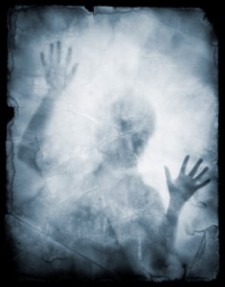In our day and age, the words ‘science’ and ‘supernatural’ are not usually grouped together in the same sentence, or even in the same universe. Science is a field of study and experimentation that deals with a body of facts, things that we know are true, as well as things that are falsifiable and testable. Supernatural, on the other hand, means beyond the natural world, therefore unexplainable. It would appear that science and all things supernatural are indeed very different, since science contains facts that everyone universally knows and agrees with, whereas a person’s supernatural beliefs will be individual to that person, since they can never be fully proven.
Even though we would tend to think that no link exists between science and the supernatural world, we would be wrong. In the times of some of the world’s most renowned physicists, Isaac Newton, Niels Bohr, Galileo Galilei, Albert Einstein, and James Clerk Maxwell, scientific discoveries were often made while scientists were actually attempting to explore supernatural realms. Similarly, if scientists proposed a theory that either went against a previous theory made by the Aristotle or went against a viewpoint of the Catholic Church, these people would be tried in the same type of trial as a ‘witch’ would undergo, being burnt at the stake. The supernatural world was one of great interest to people of those time periods (and still is today, to some extent), so a lot of questions were being asked about parapsychology, and the world’s greatest minds were putting their heads together to come up with answers. In the process, a lot of extremely beneficial scientific discoveries were made, such as x-rays and the electron. These two things were ultimately discovered because scientists were looking for ‘radiant matter’. Radiant matter, they claimed, was the dark spaces between the ‘material’ world and the ‘light’ world, between the ‘known’ and the ‘unknown’. Such speculation proved to be the result of overactive imaginations, but the associated research and experimentation was nonetheless fruitful, as it produced a key invention in the x-ray and sparked the discovery of the electron, which ultimately opened hundreds of doors for further research in physics.
Many more things were invented as a result of a scientist searching for supernatural answers, such as the television, where it was thought the faces of the dead could come forth and communicate with the living. Despite these claims being obviously false, it nevertheless produced an invention that is used by millions of people every day. In short, despite the fact that science and parapsychology appear to be unrelated fields, both can serve as footholds for the other. Science can prove to be a means of potentially answering parapsychological questions, and parapsychology can serve as inspiration for further scientific work. As long as the actual science is not using parapsychology to back up its facts, then a scientist-parapsychologist relationship is beneficial to both fields.
